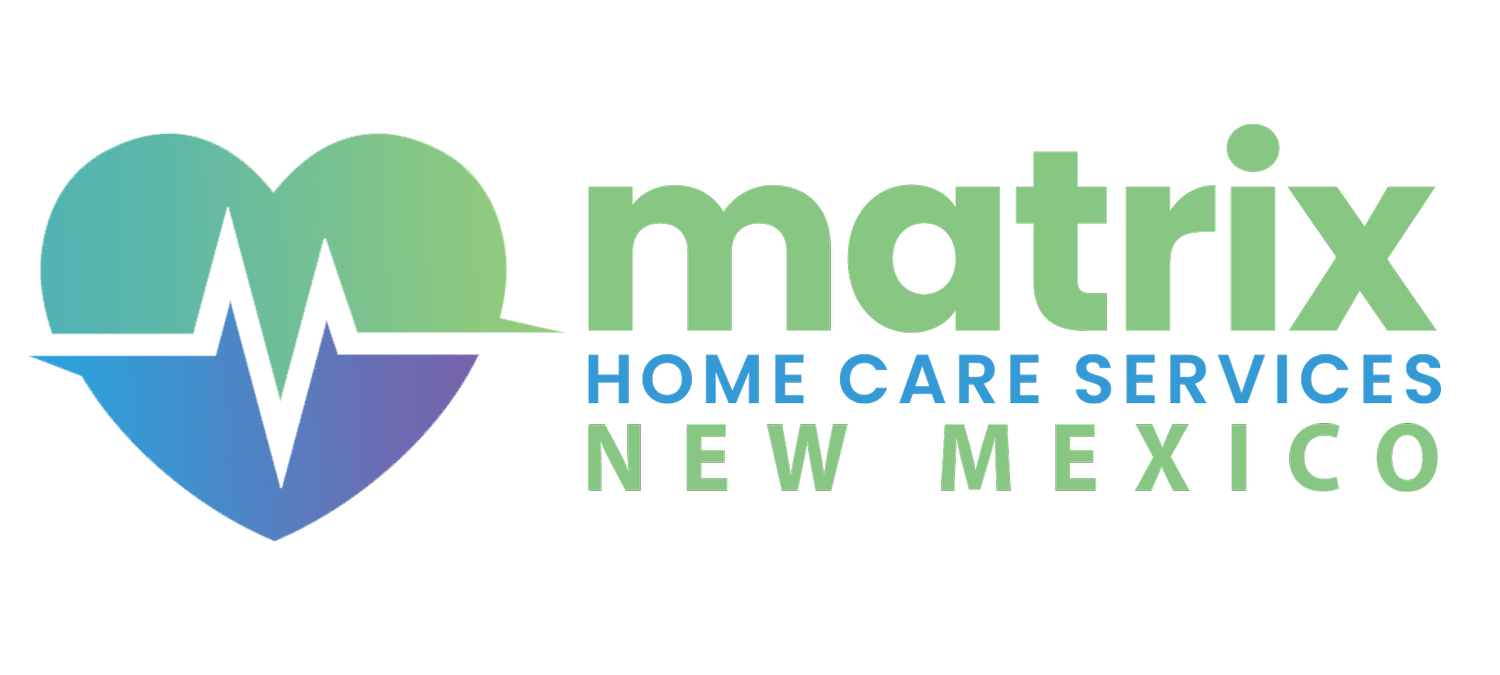Healthy Vision Tips for Older Adults
The gift of sight is precious at any age, and while growing older doesn’t have to mean losing your eyesight, certain lifestyle habits and medical conditions can increase the likelihood of vision problems. At Matrix Home Care Services of New Mexico, we’re committed to helping seniors and their families safeguard their eyesight and overall well-being. Here’s what you need to know.
Eye Diseases in Older Adults
Common Contributing Factors
Obesity, smoking, unprotected sun exposure, high blood pressure, and diabetes can all raise the risk of common eye diseases in older adults, such as glaucoma, cataracts, and macular degeneration.
• Glaucoma occurs when pressure in the eye damages the optic nerve, gradually eroding peripheral (side) vision and potentially leading to blindness. Treatments include medicated eye drops, lasers, or surgery.
• Cataracts are cloudy areas in the eye’s lens that blur vision. While they typically progress slowly, surgery is often needed to remove them once they significantly affect daily life.
• Age-related macular degeneration (AMD) impacts central vision and can cause blurriness in the direct line of sight, making reading, driving, and other tasks difficult. Treatment options may include supplements, injections, or laser treatments.
Additional age-related eye concerns include diabetic retinopathy—linked to uncontrolled diabetes—and dry eye disease, often related to reduced tear production. These conditions can lead to blurry vision, floaters, stinging, or burning eyes, but can frequently be managed with medical intervention or lifestyle adjustments.
Vision Loss and Senior Well-Being: Prevention and Maintenance
Even mild vision loss can disrupt a senior’s daily activities, heightening risks like:
• Falls and Injuries: Difficulty seeing hazards increases the risk of accidents.
• Depression and Anxiety: Losing the ability to engage in favorite hobbies or social events can take a toll on mental health.
• Cognitive Decline: Difficulty reading or interacting may lower mental stimulation.
• Reduced Life Expectancy: Overall health can suffer if vision issues limit mobility and independence.
Regular Eye Exams
Experts recommend yearly eye exams for those age 65 and older to catch and address problems early. Seniors with high blood pressure, diabetes, or a family history of glaucoma should be even more proactive.
Healthy Lifestyle Choices
Staying active, maintaining a healthy weight, keeping blood pressure in check, and wearing protective sunglasses can significantly reduce the risk or severity of eye diseases.
Warning Signs
Seek medical attention right away if you notice sudden changes, such as:
• Sudden blurred or double vision
• Eye pain or redness
• Flashes of light or floaters
• Dramatic vision loss
The Role of Nutrition in Senior Vision Health
While carrots are famously linked to healthy eyes, there are many foods that promote good vision:
• Vitamin A: Carrots, sweet potatoes, and spinach
• Vitamin C: Citrus fruits, broccoli, and tomatoes
• Vitamin E: Almonds, avocados, and olive oil
• Zinc: Beans, eggs, dairy, meat, and seafood
• Lutein & Zeaxanthin: Leafy greens, broccoli, and brightly colored fruits
• Omega-3 Fatty Acids: Fish such as salmon, sardines, and anchovies
A balanced, nutrient-dense diet can help protect the delicate structures of the eye and reduce the risk of age-related damage.
The Eyes Are the Window to the Soul
Aging itself doesn’t guarantee eye disease, but neglecting regular eye exams and healthy habits can lead to problems down the road. If you notice your loved one putting off eye care or struggling with vision changes, a gentle reminder about all they could miss may encourage them to seek help. The good news is that many eye conditions are correctable if caught and treated early.
How Matrix Home Care Services of New Mexico Can Help
Our caregivers at Matrix Home Care Services of New Mexico can make a real difference for seniors experiencing low vision or vision loss. We assist with daily tasks like meal preparation, light housekeeping, and medication reminders, making it possible for older adults to remain independent and safe at home. We also offer:
• Customized Care Plans: Tailored to each person’s specific needs and challenges.
• Fall Prevention Home Safety Checks: To reduce the risk of accidents.
• Companionship and Social Engagement: To support emotional well-being.
If you’d like to learn more, contact us today for personalized guidance. We also have resources available, including tips to make living spaces safer for older adults with visual impairments. Don’t wait—proactive eye care and supportive home care go hand in hand when it comes to maintaining a high quality of life.





